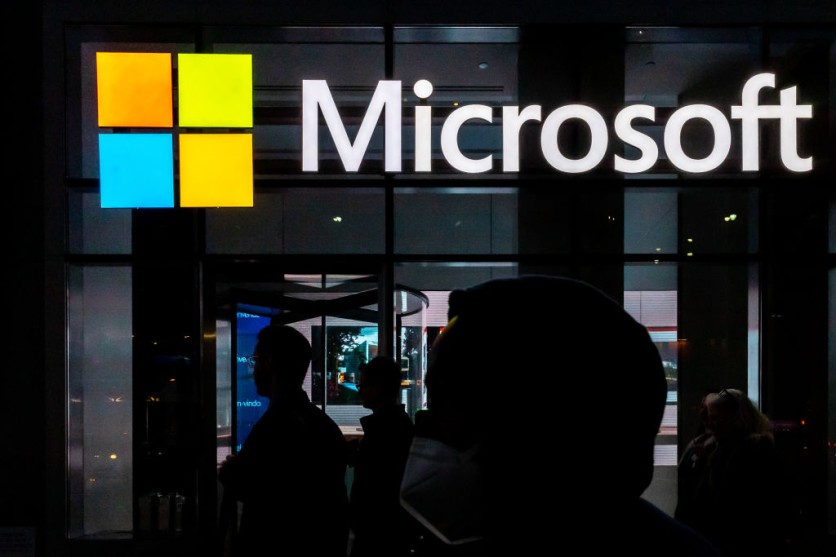A hacking group with ties to Russian intelligence successfully infiltrated the email accounts of key Microsoft figures and other employees.

A signage of Microsoft is seen on March 13, 2020 in New York City.
Hacking Microsoft Executives' Email
Microsoft, which identified the group responsible as Midnight Blizzard or Nobelium, the same actors behind the notorious 2020 SolarWinds cyberattack, detected the breach on January 12.
Affiliated with Russia's Foreign Intelligence Service (SVR), Engadget reported that Nobelium has once again drawn attention to the persistent and evolving threats posed by state-sponsored cyber espionage.
The attack employed a password spray technique to compromise a legacy non-production test tenant account, initiated in late November 2023. The threat actors went on to exfiltrate specific emails and attached documents during the breach.
This initial foothold provided the hackers access to a select number of Microsoft corporate email accounts, including those belonging to senior leadership, cybersecurity personnel, legal teams, and other functional units.
While Microsoft refrained from specifying which senior leadership members were targeted, their initial investigation suggests that the hacking group was primarily interested in information related to the company itself.
Importantly, Microsoft sought to allay concerns by stating that there is currently no evidence of unauthorized access to critical components such as customer environments, production systems, source code, or AI systems.
Fortune reported that this latest cyber intrusion underscores the ongoing challenges faced by tech giants and highlights the need for continual vigilance and reinforcement of cybersecurity measures to mitigate the risks posed by sophisticated state-sponsored hacking groups.
Shifting Balance Between Security, Business Risk
The cyber assault unfolded mere days after Microsoft unveiled its strategy to revamp software security in the wake of significant Azure cloud attacks.
Despite the absence of apparent repercussions for Microsoft customers in this latest incident, and the assurance that it did not stem from a Microsoft vulnerability, it adds to the string of cybersecurity challenges faced by the tech giant.
In their prior announcement of the Secure Future Initiative (SFI) late last year, Microsoft underscored the evolving threat landscape, particularly the challenges posed by well-resourced threat actors backed by nation-states.
Recognizing the inadequacies of the conventional balance between security and business risk assessment, Microsoft stated in its official press release that it is actively redefining its approach.
The traditional calculus is deemed insufficient for navigating a world where persistent cybersecurity challenges are orchestrated by entities with substantial financial backing. This incident has prompted Microsoft to expedite its strategic initiatives.
Also Read : North Korean Hackers Breach Russian Aerospace Institute Amid Ukraine Conflict, Microsoft Report Reveals
The imperative to strike a swift balance between security and operational risks has gained prominence in their agenda. Immediate action is imminent as Microsoft commits to applying its existing security standards to Microsoft-owned legacy systems and internal business processes.
This commitment remains steadfast, even in cases where implementing these changes may disrupt established business processes. The urgency to fortify defenses against emerging threats demands a proactive and adaptive response from Microsoft.
Related Article : Russia-Backed Hackers Posing as Microsoft Teams Target Global Orgs, Government Agencies

ⓒ 2025 TECHTIMES.com All rights reserved. Do not reproduce without permission.




